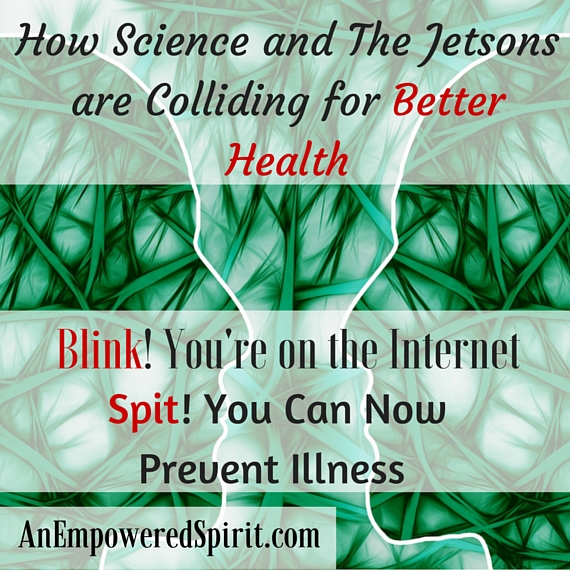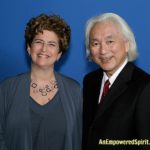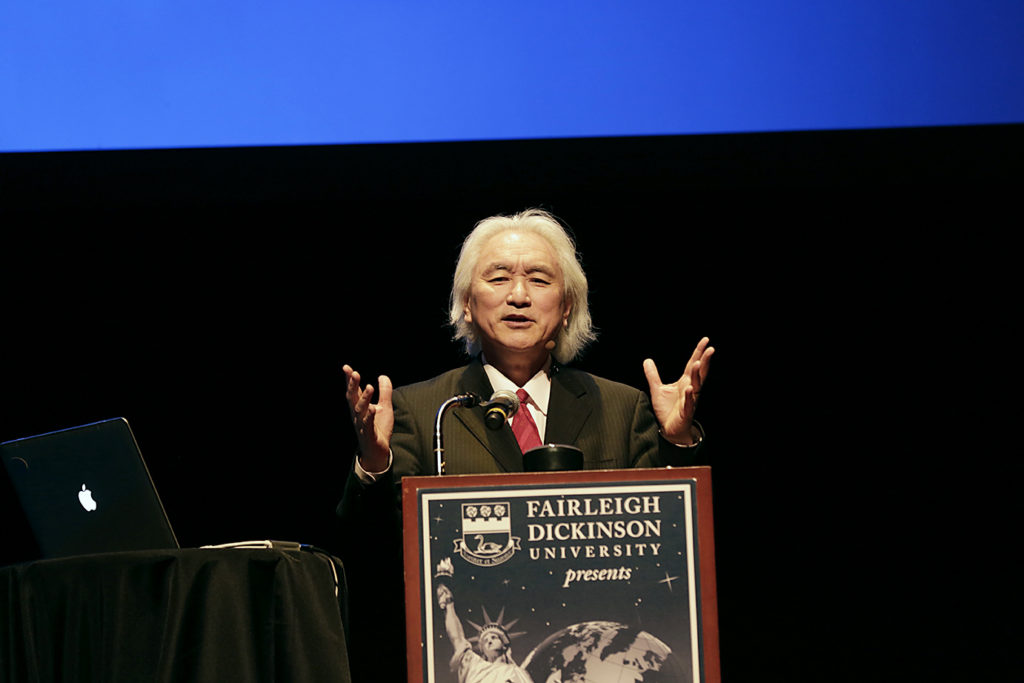How Science And The Jetsons Are Colliding For Better Health
The latest advances in science and technology provide ways for us to enjoy healthier lives. Let us be grateful for them. In this century alone there are discoveries that will turn healthcare on its ear. Exciting discoveries that will change people's lives in ways our parents and grandparents never dreamed of.
The first two that come to mind will be real game changers:
- With the 2003 completed draft of the international collaborative effort The Human Genome Project, there's now a way for researchers and the medical community to sequence and map out our DNA, leading to a far superior understanding of disease.
- Stem cells can be used to replace neurons (cells that transmit nerve impulses) that have been damaged by spinal cord injury, stroke, Alzheimer's disease. Parkinson's disease and other neurological conditions that include Multiple Sclerosis.
In my humble, non-medical opinion I am confident that these efforts will change the lives of millions of people worldwide.
I recently had an opportunity to look past today's scientific discoveries and into the not-too-distant future of innovation as I listened to theoretical physicist and futurist Mikio Kaku. Kaku, a professor of Theoretical Physics at the City College of New York, is also the bestselling author of several books including “Physics of the Future” and “The Future of the Mind.”
A Harvard University and the University of California graduate, Kaku has a laundry list of scientific theories. He's popularized science with countless appearances on radio and television, and through his many articles published on blogs and prestigious science journals.
He reeled me in with his sense of humor and likability, and hooked me with his theory that science will continue to make our lives better, easier and more fun.
Do you remember Google Glass? The optical head-mount display designed into a pair of glasses that was supposed to be the next greatest invention since the smartphone? I hope you didn't spend $1,500 for a pair because Google was forced to stop making them after legislative action over privacy issues.
Since its demise, Kaku explained, technology has grown and microchips have gotten smaller, both laying the groundwork for some incredible technological advances.
Consider these Jetson-like conveniences that will be available sooner than you think:
- Scientists in Seattle are working on Internet contact lens prototypes that will change the way we use the Internet. Blink! You’re on the Internet. Blink! You’re dialing a phone number!
- Kaku predicts that by mid-century every organ of the body can be grown in the laboratory except the brain. The brain will have brain tissue injected directly into it to help symptoms of Alzheimer’s, Parkinson’s and MS. It’ll be like a human body shop. Think about people who die from organ failure or car crashes who could now be saved with organs grown in laboratories.
- Then there's genomic medicine which, in plain English, means we’ll all have an owner’s manual about our genes. Think about going to a doctor’s office to deliver saliva and a blood sample into a box which will then spit out (pun intended) a disc listing all the genes in our body. This new disc will be our guide on our health and what preventive measures we need to take before illness strikes.
- What about cancer? In the future there will be sensors within the mirrors of our bathroom that will detect the genetic mutations we’ve inherited. When you breathe on your mirror or pee in your toilet you’ll be able to analyze yourself using “DNA chips” built into your bathroom. According to Kaku the word tumor will be eliminated from the English language. Let us hope so.
- What if you need to see a doctor right away, perhaps in the middle of the night? Simply walk over to your wallpaper and a holographic image will emerge and “perhaps a software program will answer 98% of all common problems.” Wow.
- Our specialized clothing will have the ability to monitor our heartbeats, recognize an emergency, then upload our medical history onto the web, alert ambulances, locate you via GPS and alert authorities about your emergency. Unbelievable.
This all might sound a little crazy, I know. But if you heard how strongly this brilliant man believes in science and innovation you'd become a believer too. His goal is to make the quality of our lives better, and that gives us new reasons to hold onto hope.
I’m with him.
--------------------------------------------------------
DISCLOSURE: I received three complimentary tickets to attend the New Jersey Speakers Series at the New Jersey Performing Arts Centers sponsored by Fairleigh Dickinson University. All opinions are, as always, completely my own.
Next season's exciting roster of captivating speakers at the New Jersey Speakers Series are:
- Award-winning actress Rita Moreno
- Former Prime Minister of Israel Ehud Barak
- A panel discussion of racism in America with Michele Norris, Jason Riley & Morris Dees
- John Cleese, co-founder of Monty Python
- General Martin Dempsey, Former Chairman of the Joint Chiefs of Staff
- Ted Koppel, broadcast journalist and former anchor of Nightline
- Jon Meacham, Pulitzer Prize winning presidential historian








